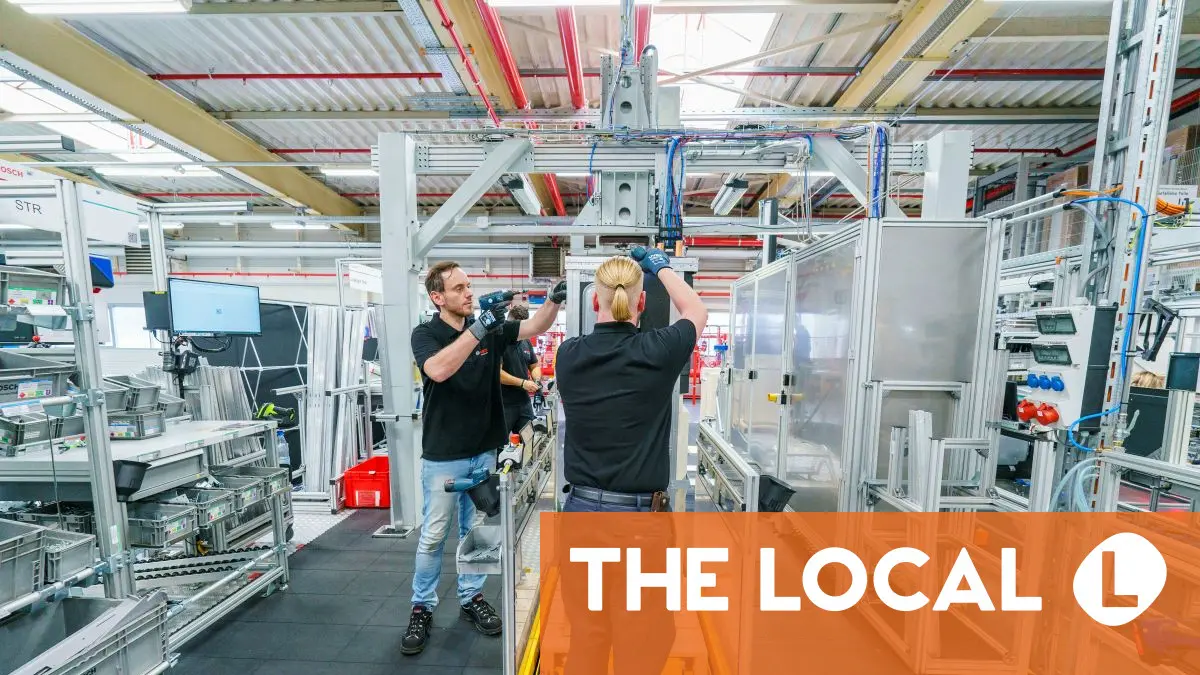LinkedIn, the online jobs board turned social media platform, published its “top companies” list for 2025 last week, including a ranking of the “25 best large employers for your professional development” in Germany.
Germany’s jobs market is marked by uncertainty at the moment as its major industries navigate economic stagnation on the domestic market as well as increasing turbulence on global markets.
At the same time – and despite a slight uptick in unemployment – there are plenty of opportunities for jobseekers around, as Germany still lacks the skilled workers it needs to fill positions in key industries.
‘The best employers for professional development’
According to LinkedIn, more than half of professionals worldwide are currently looking to change change jobs or even industries, and many of them are interested in re-tooling their skills and qualifications to help secure their employment into the future.
As well as benefits like a good salary and perks, jobseekers also increasingly expect their employer to provide training opportunities and promote their professional development.
READ ALSO: The jobs and skills growing in demand across Germany
To help candidates find the best opportunities, LinkedIn’s ranking took special interest in employers that help employees develop their careers.
Here are the top 25 companies in Germany:
- Siemens
- Stryker
- ServiceNow
- Bain & Company
- Roche
- Boehringen Ingelheim
- Bosch
- PwC
- Medtronic
- Eli Lilly and Company
- Thermo Fisher Scientific
- EY
- Boston Scientific
- McKinsey & Company
- BearingPoint
- Amazon
- March
- Sanofi
- AbbVie
- BD
- Grant Thornton Germany
- Oracle
- Accenture
- Procter & Gamble Germany
- CSL
Notably, many of the top rated firms are manufacturers and software developers.
Advertisement
Siemens, which took the number one spot, largely focuses on manufacturing machinery for automation. Its main locations in Germany are in Munich, Nuremberg and Berlin, and the most common job titles it hires for are project managers, software engineers and product managers.
Stryker, which was rated second-highest, is a US-based medical equipment manufacturer with German locations in Freiburg and Kiel. It tends to hire sales representatives, manufacturing engineers, and construction administrators, and seeks employees with skills related to biomedical engineering, general surgery and human movement science.
Third on the list is ServiceNow, a California-based software development company with locations in Munich, Frankfurt and Berlin. ServiceNow is focused largely on creating AI platforms for companies and tends to seek IT consultants and account managers.
Advertisement
How was the ranking determined?
The list of top employers in this category was limited to large companies (at 5,000 employees worldwide with at least 500 in Germany). According to LinkedIn, companies were evaluated on eight factors, which included development, skills growth, business stability, external job prospects, business affinity, gender diversity, educational level (of employees) and employer relevance.
Companies with a turnover rate above ten percent were also excluded, as were those that had laid off ten percent or more of their workforce since the start of 2024.
Interestingly, those constraints made LinkedIn’s ranking look quite different from a a Statista survey of Germany’s top employers released at the beginning of the year.
That survey, commissioned by Stern magazine, saw the drugstore supermarket DM at the top of the list, followed by Adidas and Google Germany. Several automakers also made the list; BMW, Porsche and Audi were all in the top ten.
REVEALED: The ‘best’ German companies to work for in 2025
Some of those companies were likely omitted from LinkedIn’s ranking due to recently announced layoffs, such as those at the above mentioned car makers and Adidas.





































